Normal Sorting Worksheets for Ages 6-8
11 filtered results
-
From - To
Enhance your child's learning with our engaging Normal Sorting Worksheets designed specifically for ages 6-8. These worksheets focus on developing essential sorting skills, helping young learners categorize objects by size, color, shape, and other attributes. Our user-friendly resources encourage critical thinking and promote fine motor skills as children cut, sort, and match items. Ideal for classroom or at-home use, these worksheets offer a perfect mix of fun and education. Each activity is crafted to align with grade-level learning objectives, ensuring your child builds a strong foundation in observational skills and logical reasoning. Start sorting for success today!
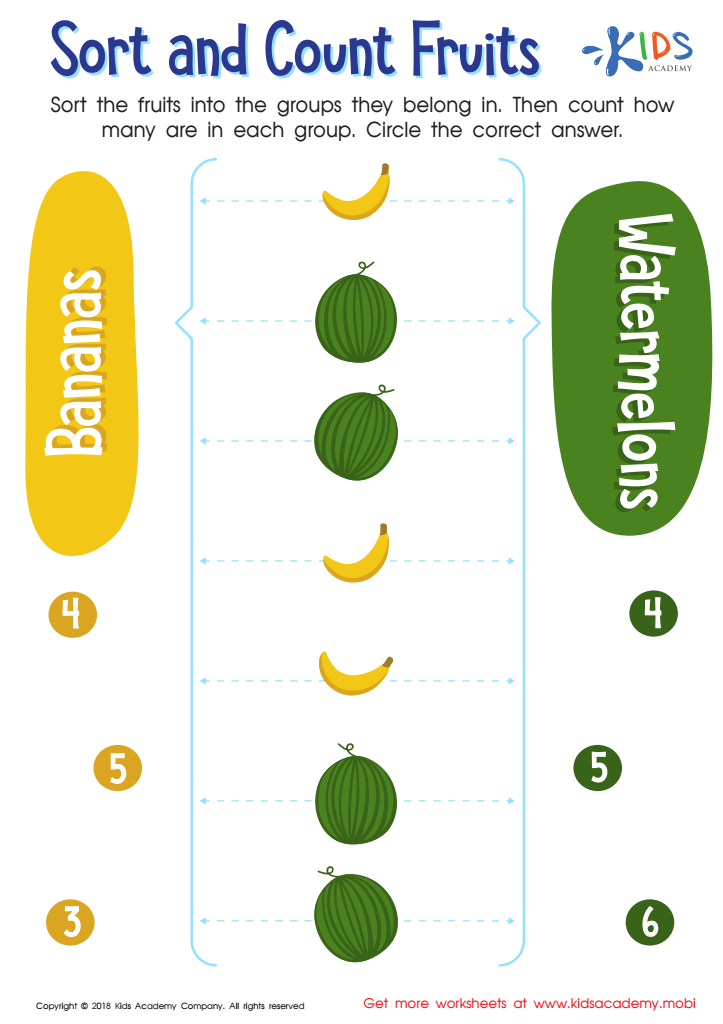

Sort and Count Fruits Worksheet


Sort and Count to the Moon Worksheet
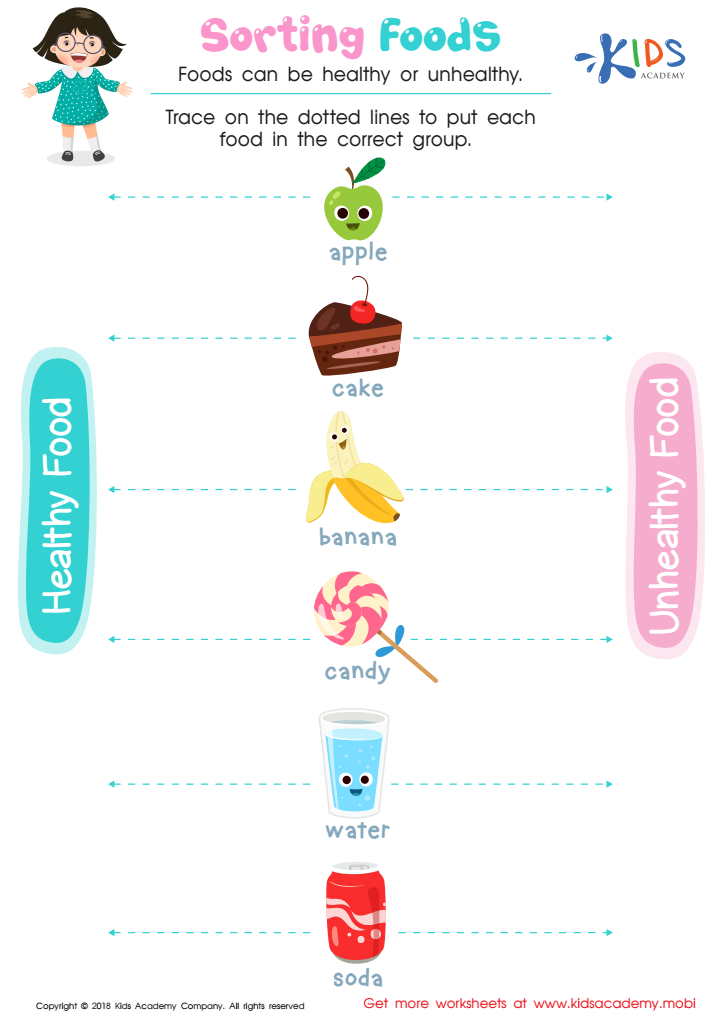

Sorting Food Worksheet


Sorting Animals in 3 Groups Worksheet
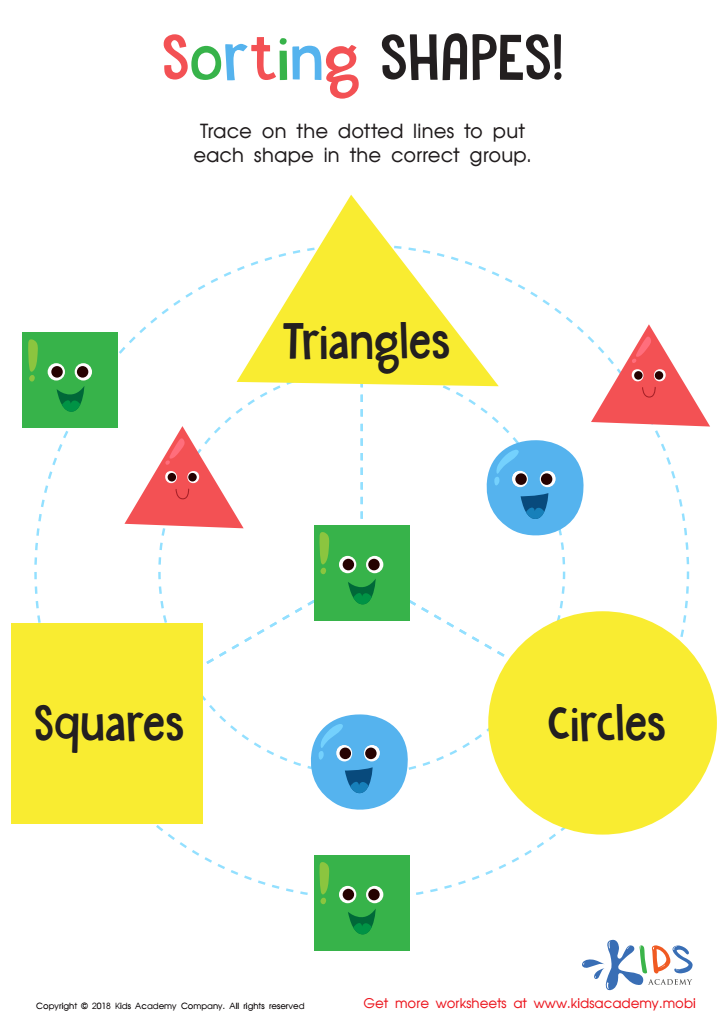

Sorting Shapes - Part 3 Worksheet
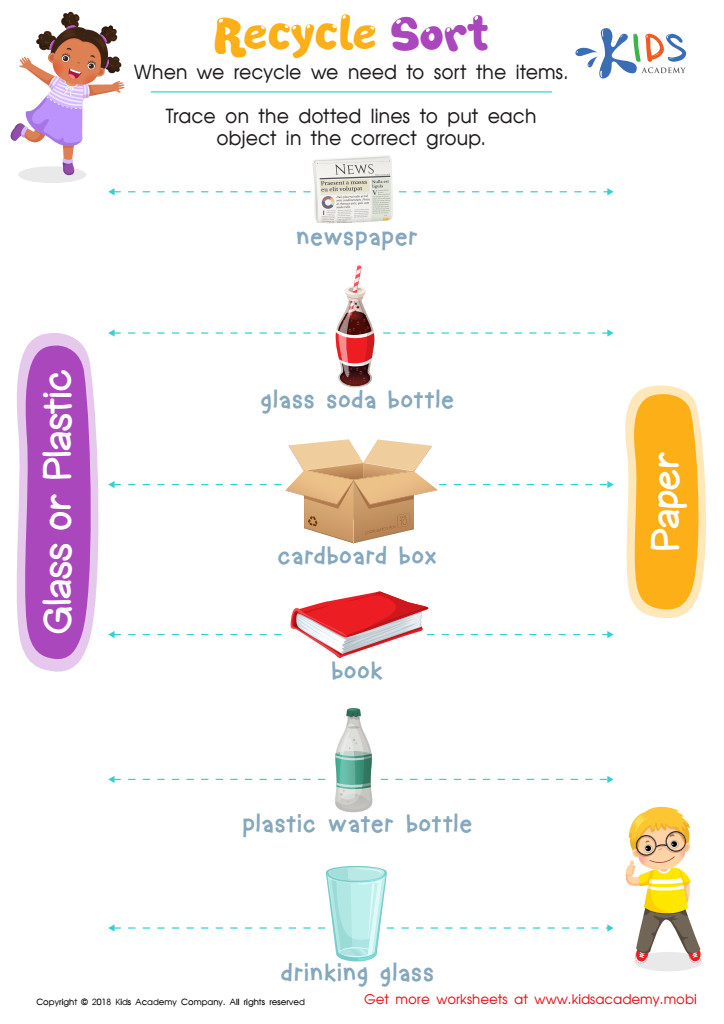

Recycle Sort Worksheet
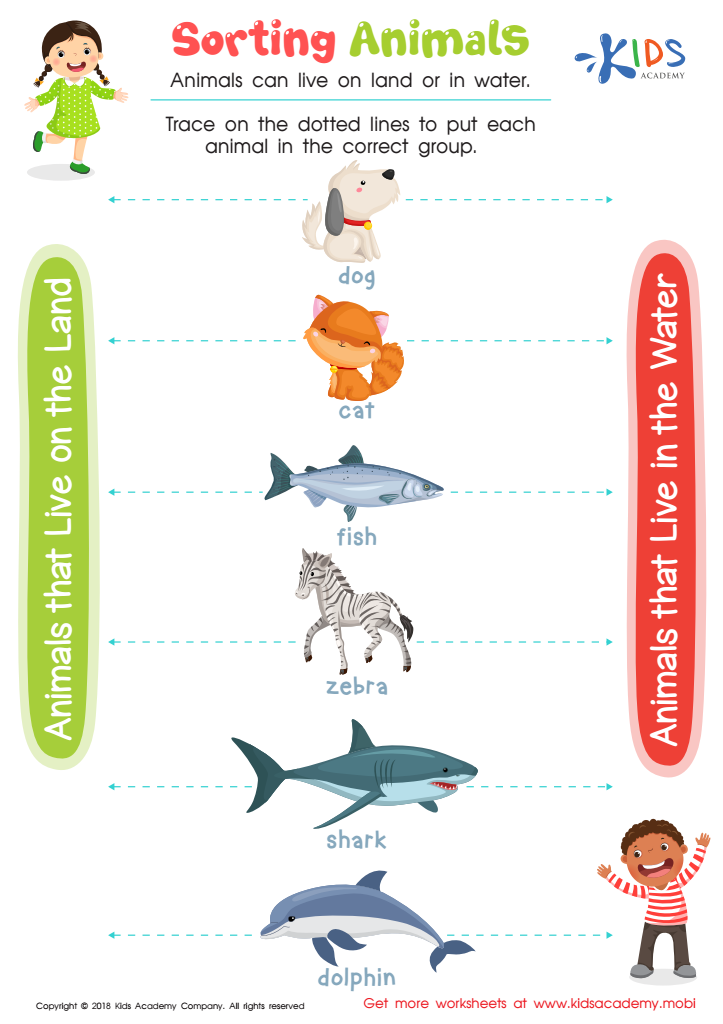

Sorting Animals Worksheet
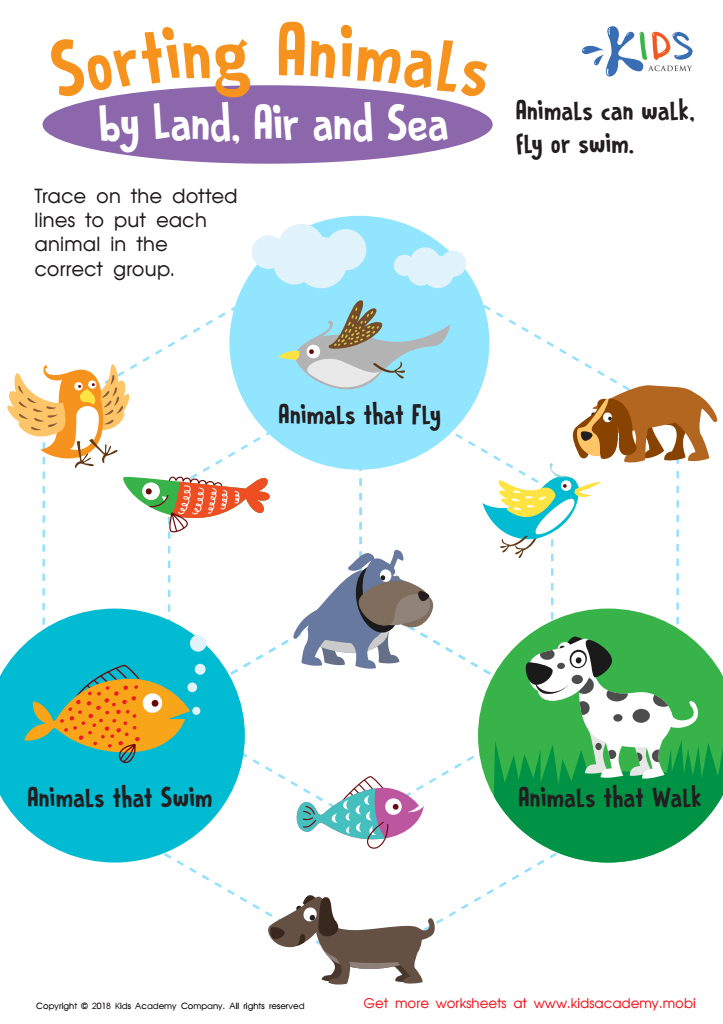

Sorting Animals by Land, Air and Sea Worksheet
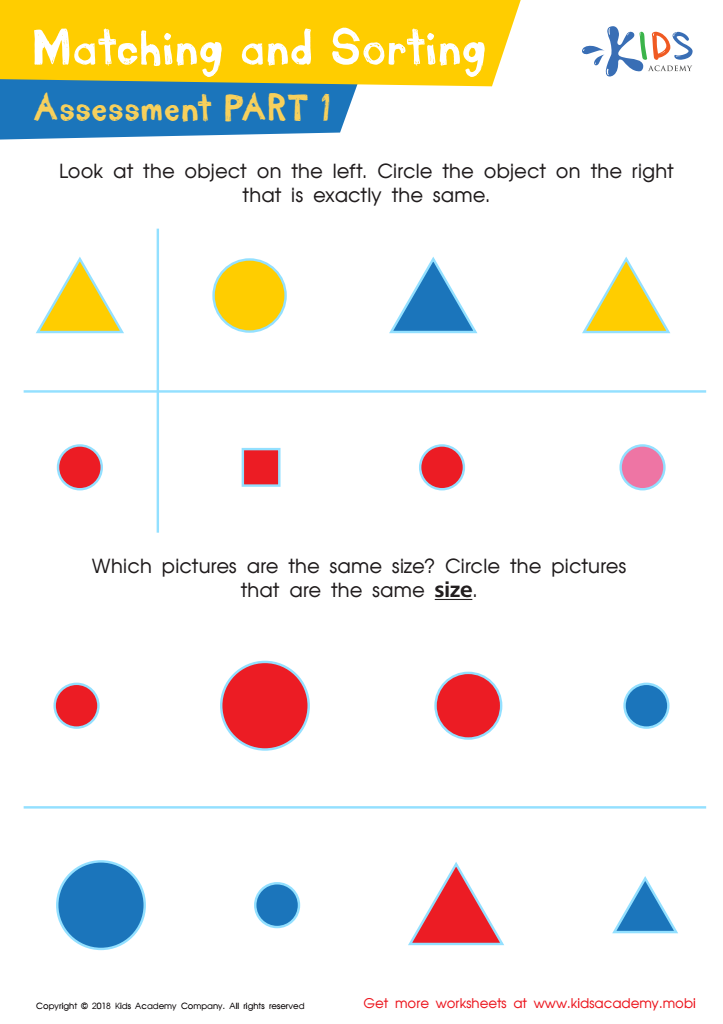

Matching and Sorting for Kindergarten: Assessment 1 Worksheet
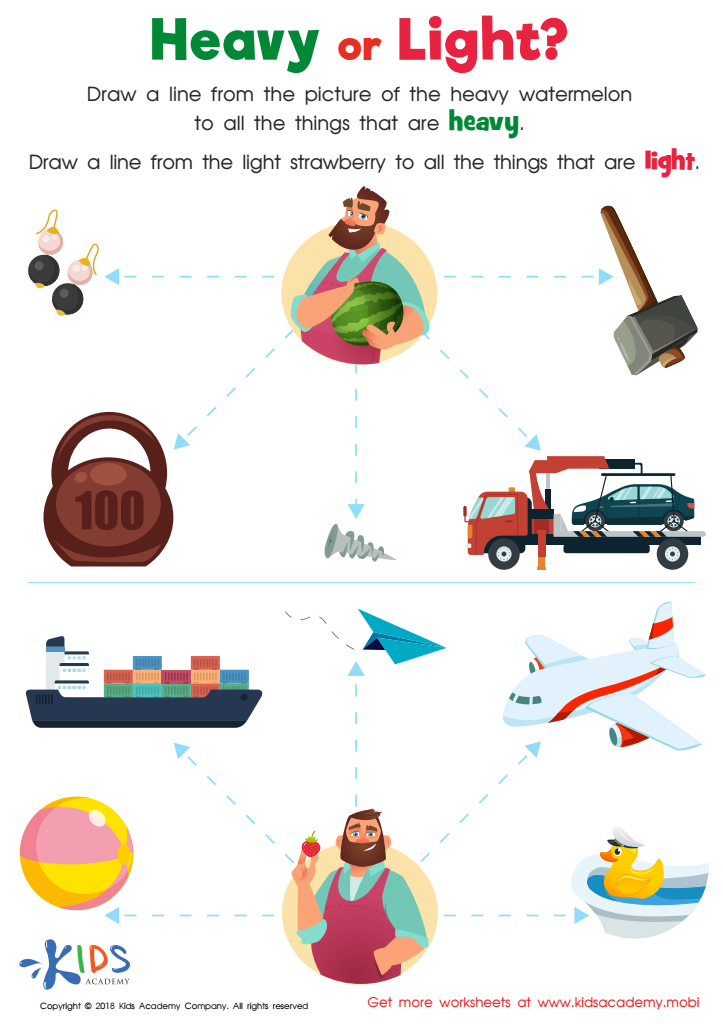

Heavy or Light? Worksheet
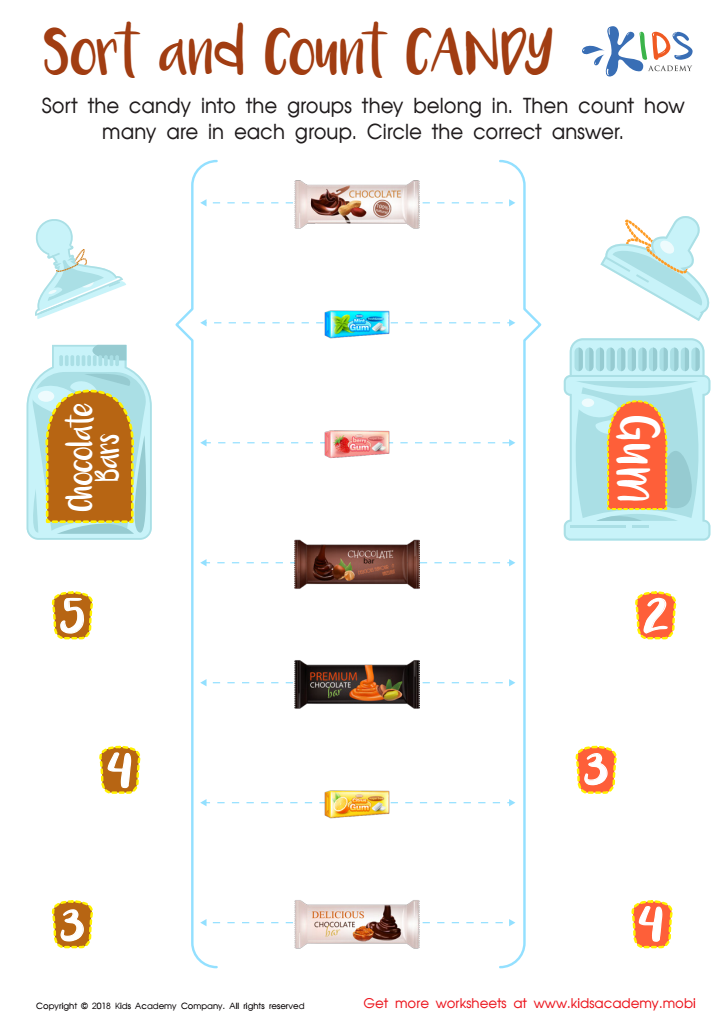

Sort and Count Candy Worksheet
Normal sorting refers to the process of organizing objects, numbers, or concepts systematically, based on specific criteria. For children aged 6-8, mastering sorting skills lays a crucial foundation in early math and analytical thinking. Parents and teachers should care about this skill development for several reasons.
Firstly, sorting enhances cognitive abilities. By sorting items, children learn to recognize similarities and differences, which strengthens their observational skills and critical thinking. For instance, organizing colorful blocks by size or color not only makes playtime educational but also keeps them engaged.
Secondly, sorting provides hands-on experience with categorization, which is an essential mathematical concept. It nurtures early numeracy skills and prepares students for more complex concepts like addition and subtraction, as they learn how to group and compare quantities.
Moreover, sorting fosters important social skills. When children collaborate to sort objects, they gain experience in teamwork, communication, and negotiation.
Lastly, sorting connects to real-world applications, helping children understand organization in daily life, like arranging clothes or organizing books. Thus, emphasizing normal sorting activities during this developmental stage is vital for holistic growth, laying down a solid groundwork for future learning.
 Assign to My Students
Assign to My Students





















